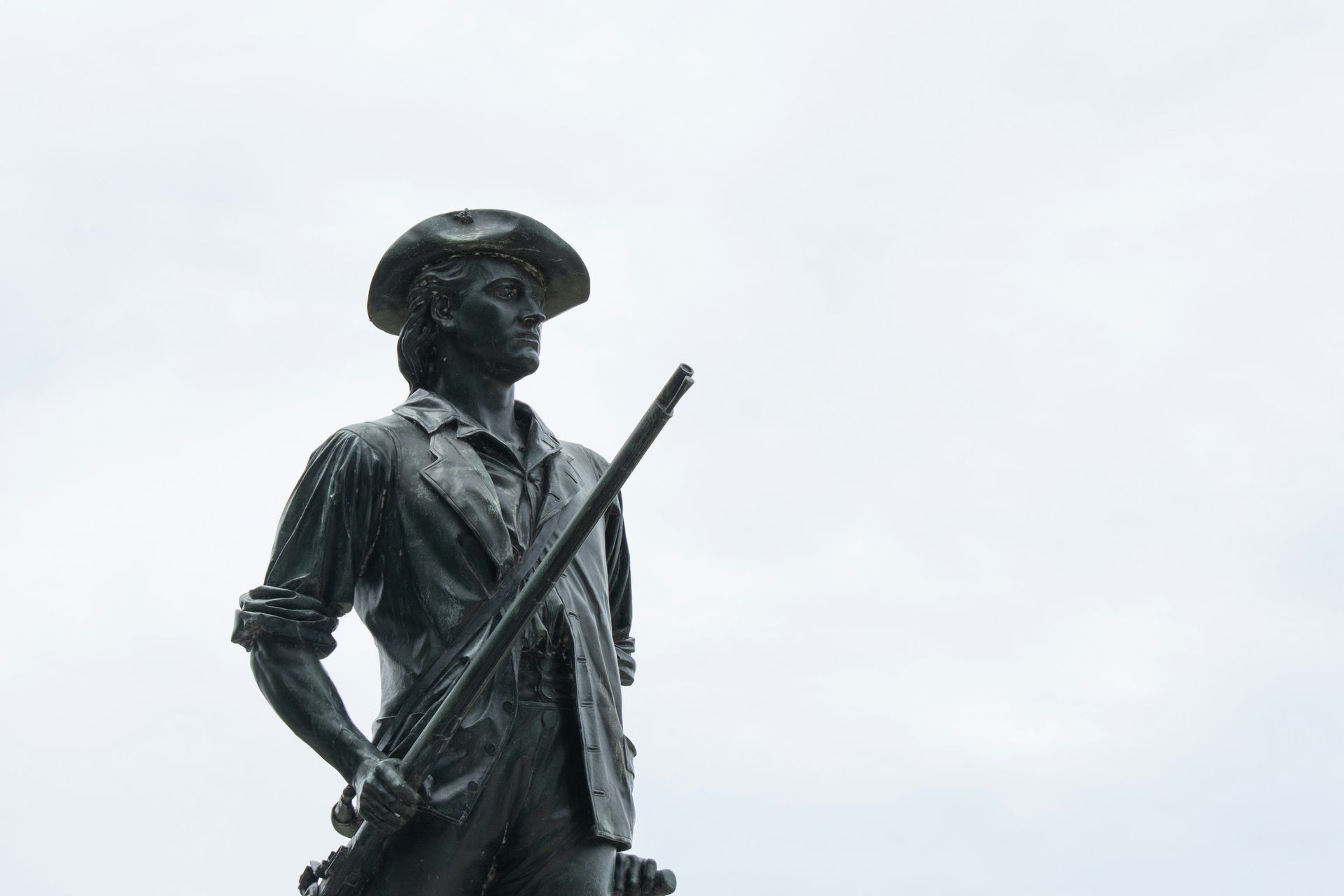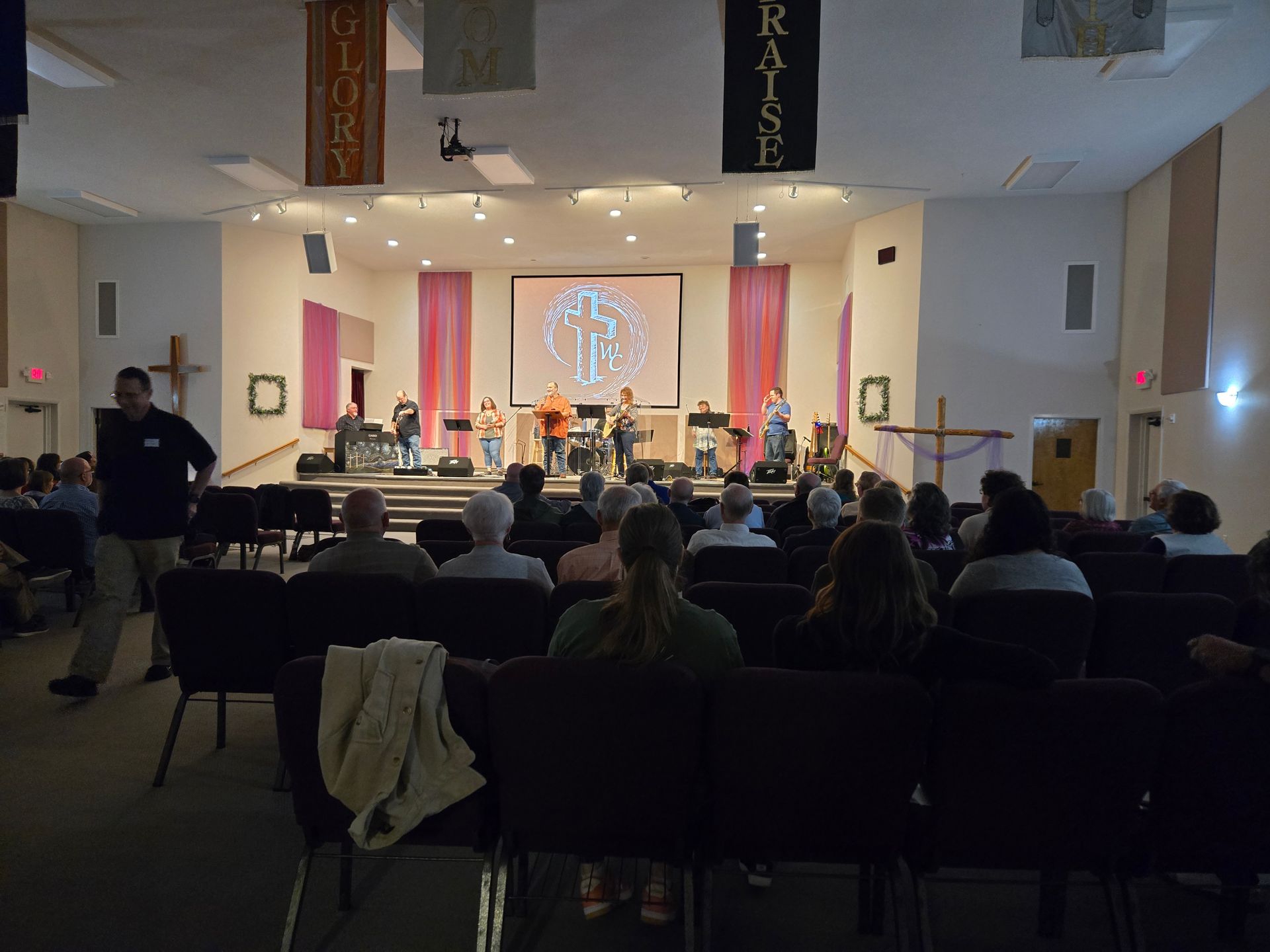Lost and Found of Paradise
Photos by Ray Rushing | This article originally appeared in the Spring 2019 issue of The Brethren Evangelist
The first thing you notice about the town of Paradise is, not surprisingly, the devastation.
More than four months after the Camp Fire raged through the town, the geometry of the place is askew, the hard angles of former buildings melted down into shapes more in keeping with the blackened organic sprawl of the remaining trees than something designed by human hands. Burned out cars, their tires long since consumed by the blaze, rest lower to the ground than what seems possible. Even in heavily-wooded areas, the views stretch for miles now, whole neighborhoods reduced to rubble, flattened into charred vistas rarely seen outside of apocalyptic wasteland movie sets.
The second thing you notice, though, is even more unsettling. The devastation is thorough, and unrelenting, until... well, it isn’t.
Throughout the town, isolated houses and businesses still stand, untouched, surrounded on all four sides by complete wreckage as if transplanted into place from somewhere else, somewhere peaceful, a place where even the idea of disaster has yet to materialize. It’s an assault on the mind, these visions of perfection against a backdrop of total and complete ruin.
In late February, eight of us traveled here— four from Five Stones Community Church in Ashland, Ohio, four from Northgate Brethren in Manteca, California. Working with the charitable organization Samaritan’s Purse, our mission in Paradise was a unique one.
We weren’t here to rebuild. We weren’t here to clean up. We weren’t even here to meet the physical needs of the survivors.
Instead, four months after a fire started two canyons away before riding 60 miles per hour winds up the mountain to send people fleeing in all directions with nothing but their own lives, we were there to search.
And to find.
Clad in white Tyvek suits and ponchos that did little to keep the torrential rain from soaking us to the bone over the course of five days, we took hand rakes and shovels to the remnants of what used to be homes, looking for whatever valuables the fire didn’t consume. Sifting through the ash—a white and grey mess, the consistency and weight of wet toilet paper thanks to the rain—we searched for the small remnants of a life that no longer existed. Wedding rings, military medals, heirloom jewelry, dog tags, loose diamonds—anything that the homeowners might want to be recovered.
In these searches, we were met head-on with the stark physics of what happens to various substances when you crank up the surrounding world’s temperature knob to broil. Pearls turn black and go a little pear-shaped above 1700 degrees Fahrenheit. Glass melts into green and amber stalagmites. Pottery dissolves back into its original, earthy form. The coins we found were mostly unrecognizable, silver dollars fused into cylinders the size and shape of barbells, the familiar profile of Susan B. Anthony pressed flat into a vague apparition of her former self.
The valuables were no longer valuable, per se. Not in a material sense, anyway. We were looking to provide closure. To give homeowners the chance to recover what could be recovered and say a final farewell to what couldn’t.
We were also there for them. Standing in a circle with the homeowners, we prayed with them. We listened to their stories of that day, all of which were harrowing in ways that are unimaginable for those of us blessed enough not to live in an area where the threat of an all-consuming fire rushing over the horizon is a daily concern.
The Camp Fire that leveled 95 percent of the town of Paradise started early in the morning. We heard the same story over and over: it began as smoke, gray at first before darkening to a thick black curtain. People went about their usual routines in the beginning—taking the kids to school, driving to work, buying milk at the corner store. But when the wind shifted and the flames began to illuminate the edge of the sky behind the tree line, the threat became real.
The people of Paradise fled as best they could before the narrow roads winding down the mountain clogged with traffic, forcing many to turn back and flee on foot. The fire swept in over the next few hours, exhausting the oxygen in the air and chewing through buildings like kindling after a summer defined by a critical lack of rain. At points in the early afternoon, the fire was destroying the town at a rate equivalent to one football field per second. By the end of the next week, the fire would take its place as the most destructive blaze in California history, destroying triple the amount of life and property than the previous worst three wildfires on record combined.
Parts of the town, in fact, are still smoldering.
Despite the devastation, though, the fire isn’t the story of Paradise. There were tears, of course, even months after the tragedy. But the people of Paradise that we met, to a person, were thankful for what was left.
On the second to last day, standing by her elderly father, whose house was completely gone, a woman named Lisa summed the whole situation up succinctly. “Coming here, helping us find Mom’s wedding rings,” she said. “That’s what those crazy Christians do. They help when help is needed.”
The strength of the people of Paradise showed itself in their gratitude— not just towards the volunteers wading through the burned- out hull of their former lives in the pouring rain, but toward the fact that they survived: that they have a future. That God preserved what mattered in their individual lives, and showed His grace in ways that now seem nothing short of miraculous.
The metaphor wasn’t lost on us, even as we acted it out in real time. God finds us in the devastation of our lives, buried in the wreckage of a fallen world, and returns us to our proper place. It’s the widow’s coin, the lost lamb, the prodigal son, this time set against a backdrop where true beauty and abject desolation exists, side by side. It’s a real-life parable set in a mountain town filled with people who have lived through the worst of what this world can offer, and who now truly seem to understand what ultimately matters, both in this life and the next.




















